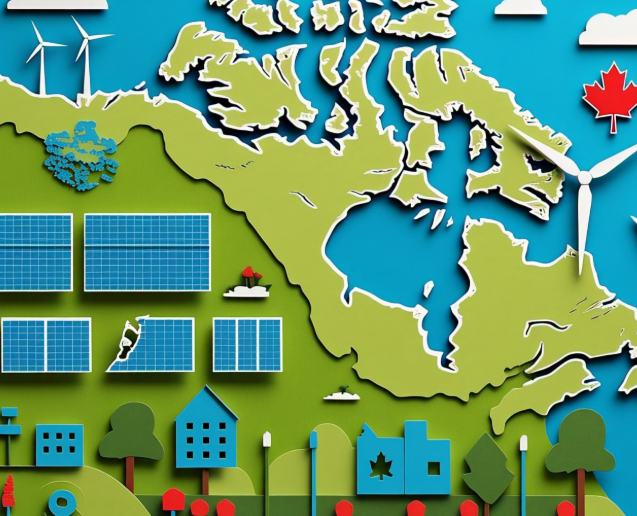The push for a greener future is gaining momentum globally, and Canada is no exception. The Canadian government is actively encouraging homeowners and businesses to adopt energy-efficient practices through various programs. These energy-efficient incentives aim to reduce greenhouse gas emissions, lower energy costs, and create a more sustainable environment. Understanding and how to access these programs can significantly benefit individuals and the nation.
Understanding Federal Energy Efficiency Programs
The federal government offers several key programs designed to support energy efficiency incentives. For example, the Canada Greener Homes Grant provides grants to homeowners for eligible retrofits, such as insulation upgrades, new windows and doors, and heat pump installations. This program aims to make energy-efficient home improvements more affordable and accessible.
Another significant initiative is the federal tax credit for eligible energy-efficient home renovations. This credit allows homeowners to claim a portion of their renovation expenses on their income tax returns, further reducing the financial burden of going green.
These programs often require specific criteria to be met, including pre- and post-retrofit energy assessments conducted by certified professionals.
Provincial and Territorial Energy Incentives
In addition to federal initiatives, many provinces and territories offer their own unique energy efficiency programs. These programs often complement federal efforts, providing additional incentives and support. For instance, some provinces offer rebates for energy-efficient appliances or provide subsidies for solar panel installations.
- British Columbia: BC Hydro and FortisBC offer various rebates for energy-efficient upgrades, including heat pumps, insulation, and windows.
- Ontario: Enbridge Gas and Save on Energy provide incentives for home energy audits and upgrades, focusing on natural gas efficiency.
- Alberta: Energy Efficiency Alberta offers programs for both residential and commercial sectors, including rebates and financing options.
- Quebec: Hydro-Québec offers programs for energy-efficient heating, insulation, and appliance upgrades.
These provincial and territorial programs often have specific eligibility requirements and application processes, so it’s crucial to research the programs available in your region.
Navigating the Application Process
Accessing these energy-efficient incentives involves several steps. First, it’s essential to research the available programs and determine your eligibility. This often involves visiting government websites or contacting provincial energy agencies.
Next, you’ll typically need to schedule a pre-retrofit energy assessment with a certified energy advisor. This assessment will evaluate your home’s current energy performance and recommend eligible upgrades. After completing the upgrades, a post-retrofit assessment is required to verify the improvements.
Finally, you’ll submit your application, including all necessary documentation, to the relevant program administrator. This process may involve submitting invoices, energy assessment reports, and other supporting documents. It’s important to keep detailed records of all expenses and assessments to ensure a smooth application process.
Benefits of Energy Efficiency Upgrades
Investing in energy-efficient upgrades offers numerous benefits. Beyond reducing your carbon footprint, these upgrades can lead to significant cost savings on energy bills. Improved insulation, for example, can reduce heating and cooling costs, while energy-efficient appliances consume less electricity.
Additionally, energy-efficient homes often have increased property values. Many homebuyers are increasingly prioritizing energy efficiency, making these upgrades a worthwhile investment. Furthermore, these changes contribute to a more comfortable and healthy living environment.
By taking advantage of the Canadian government’s energy efficiency incentives, homeowners and businesses can play a vital role in creating a sustainable future while also enjoying significant financial and environmental benefits.

